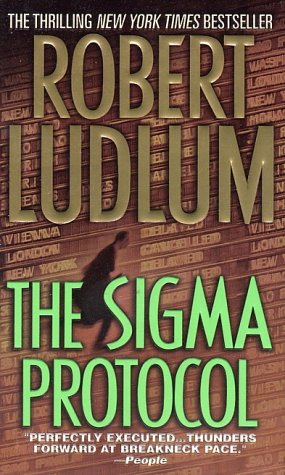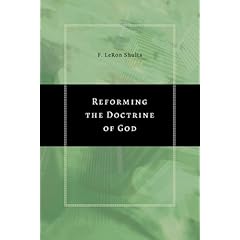 In The Sigma Protocol, Ludlum puts wealthy financier Ben Hartman and federal agent Anna Navarro on the chase of an elusive world-wide conspiracy. It all begins with a string of seemingly unconnected deaths of men in their eighties. Each death in itself seems normal enough, but there seems to be some connection, and Agent Navarro is enlisted to prove they are in fact murders and to try find the killers. All she is given is a list of names, including a number of the murdered men and the names of a couple who cannot be located. Ben, meanwhile, finds himself the target of a strange assassination attempt while he is in Zurich, and ends up on the run, though he doesn't know from whom. Anna's and Ben's paths eventually intertwine, as they discover they are in pursuit of the same elusive foe.
In The Sigma Protocol, Ludlum puts wealthy financier Ben Hartman and federal agent Anna Navarro on the chase of an elusive world-wide conspiracy. It all begins with a string of seemingly unconnected deaths of men in their eighties. Each death in itself seems normal enough, but there seems to be some connection, and Agent Navarro is enlisted to prove they are in fact murders and to try find the killers. All she is given is a list of names, including a number of the murdered men and the names of a couple who cannot be located. Ben, meanwhile, finds himself the target of a strange assassination attempt while he is in Zurich, and ends up on the run, though he doesn't know from whom. Anna's and Ben's paths eventually intertwine, as they discover they are in pursuit of the same elusive foe. Sigma, it turns out, is a corporation that was started in the closing day of WW II, by a group of industrialists from around the world, men on both sides of the great conflict. In the years following the war, this secret corporation wields enormous power over the affairs of the world. But it is all with a sinister end in sight, as Ben and Anna discover. Sigma is headed by Jürgen Lenz, son of the famed Gerhard Lenz, one of the doctors in the Nazi regime famous for his experiments on children during the war. Lenz and Sigma are working on an anti-aging formula, and behind their legitimate front, they are continuing Lenz's WW II experiments, with the goal of producing a chemical that will prolong the lives of important members of society, such as politicians, leaders of industry, scholars, and scientists, with the goal of bettering society by allowing these people more productive years to make use of their experience. But the anti-aging serum comes at great cost, as it must be harvested from the brains of children. So Sigma has been kidnapping and killing children, mostly from war zones and other underprivileged areas, to make their drug. In the mean time, Sigma has been killing older members of its board who are not of the same mind about this course of affairs.
Anna and Ben eventually uncover this plot, and come face to face with Jürgen Lenz, who they soon discover is really Gerhard Lenz, the WW II scientist, who has been one of the first test subjects of his own drug. They are able, with a little help from Ben's father and one of the original founders of Sigma Max Hartman, to foil Lenz's plan and narrowly escape with their lives.
The Sigma Protocol was an interesting read, and it had some really great stretches, though it dragged in places. I also found the eventual solution to be quite a bit far fetched. The idea that there is one meta-corporation manipulating world markets and events from behind the scenes stretches plausibility, as does the killing of thousands of children a year to make a drug to halt and reverse aging. Overall, I'd say it's not a bad book, though I hope to discover that other Ludlum books make for better reading.

